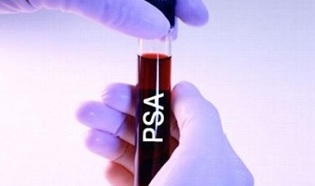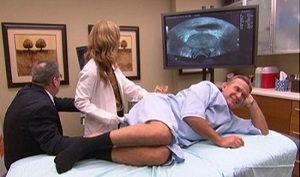Acute prostatitis is an inflammatory process in the prostate gland that is not protected by men. According to expert reviews, the disease is detected in half of men of reproductive age. Acute prostatitis is an infectious lesion of the prostate gland, accompanied by edema and the formation of purulent foci in the organs. Some symptoms appear immediately, while others are only detected during diagnosis. What is the cause of this disease, how does it manifest itself and what treatment measures are taken?
Why does it arise?
The cause of the acute form of the disease in men lies in gram-negative organ infections (E. coli, Proteus, Klebsiela etc. ) and gram-positive bacteria (streptococci, staphylococci).
Acute bacterial prostatitis often develops as a result of urogenital infections transmitted through unprotected sexual intercourse, such as:
- Chlamydia.
- Candidiasis.
- Gonorrhea.
- Trichomoniasis and a few others.
In addition, urethritis is often the cause of acute prostatitis: pathogenic bacteria enter through the open prostate canal in the urethral wall. More rarely, the infection occurs when a man has acute cystitis, and bacteria from the bladder enter the prostate. There is also a method of hematogenous infection, in which pathogens spread throughout the body through the bloodstream.
In addition to these reasons, there is another reason:
- Disorders in intimate life (disorders and short periods of sexual intercourse, erectile dysfunction).
- Body hypothermia.
- Inactive due to inactive work or lifestyle.
- Rectal pathology.
- Consequences of surgical intervention on the urogenital organs.
- Respiratory virus infections.
- Stagnant phenomena that form in the pelvic ducts and often cause prostate canal disorders.
- Difficulty defecating, varicose veins.
The causes are various, but all contribute to the onset of acute prostatitis.
How are pathological manifestations?
Symptoms generally depend on the degree of inflammation.
At the catarrhal stage, the following symptoms of acute prostatitis are observed:
- Severity and painful symptoms in the genital area.
- Emptying the painful and frequent bladder, which is very troublesome for men at night.
- A slight increase in temperature is possible.
- There are no signs of intoxication.
On palpation, changes may not be detected or slight prostate enlargement may be found. In men, this test causes minor pain. Symptoms of acute prostatitis are also detected through tests. In glandular secretions, there is an increase in leukocyte levels, the presence of mucus and pus threads, and leukocytes also appear in the urine. Timely treatment of catarrhal prostatitis will allow a person to recover in one and a half weeks.

Acute follicular prostatitis has stronger symptoms. Men worry about pain in the perineum area, which is assigned to the sacral, anal area. At this stage, the patient feels urinary incontinence. The pain also causes difficulty defecating. The temperature rises to 37. 5-38 ° C.
Certain symptoms are detected and diagnosed. During the investigation, the doctor determined that the glands had increased and thickened, while becoming asymmetrical, when pressed, causing sharp pain. The number of purulent filaments and leukocytes in the urine increases, it is stored in the urine as sediment. If adequate treatment is prescribed, the prognosis is good.
If the disease is incurable, the next stage develops - the type of acute prostate parenchyma. The symptoms of this form of the disease in men are as follows:
- Temperature rises to 39-40 ° С.
- Patients shiver.
- There are signs of general weakness.
- Loss of appetite, but constant thirst.
- At first, urination becomes more frequent, difficult, and after a while it stops.
- Patients suffer from constipation and bloating.
Symptoms of acute prostatitis are more pronounced, for example, the pain radiates to the rectal area, becoming throbbing. Sometimes symptoms are accompanied by paralytic tissue edema, in which case rectal research methods cannot be applied. A mixture of pus was observed in the urine. Acute illness should be treated immediately, otherwise the abscess will develop. If a weak pathogen enters the body, the symptoms hardly appear, then they say that the patient has subacute prostatitis.
How is it treated?
Men are interested in the question of how to treat acute prostatitis? According to experts, the treatment of acute prostatitis is based primarily on the elimination of the cause of the disease. As a rule, drugs with antimicrobial action are used. Antibiotics are selected individually in each case based on the diagnostics performed. Antibiotic intake lasts until complete recovery. Such treatment, according to doctor's reviews, will stop the acute process that leads to the active reproduction of pathogenic microorganisms in the tissues of infected male organs. Treatment of acute prostatitis should be comprehensive.
Not only antibiotics are used, but also other drugs:
- Immunostimulatory drugs.
- Ways that improve blood circulation.
- Nonsteroidal anti-inflammatory drugs.
- Vitamin complex.
- Herbal medicine.
- Calming and antidepressants.
Preparations with analgesic and antispasmodic effects can relieve men from unpleasant painful sensations. A similar effect is given by the suppository to be inserted into the anus with an anesthetic in the composition. Suppositories, as a rule, have antibacterial properties, gently acting directly on the cause of the disease - the pathogenic agent. At home, rectal suppositories with sea buckthorn oil, propolis, honey, as well as enemas with warm herbs will help relieve pain.
To normalize metabolic processes in the prostate gland in men and accelerate regrowth of damaged tissue, bioregulation peptides are prescribed. Treatment also includes immunostimulants and modulators, nonsteroidal anti-inflammatory drugs (tablets or injections), injection solutions, and vitamin complexes.
If antibiotics or NSAIDs do not cure the infection, hormones are included in the treatment.

Once the main symptoms of acute prostatitis are eliminated, the treatment is complemented by physiotherapy:
- Electrophoresis.
- Prostate massage.
- microwaves and a few others.
A good effect, as evidenced by patient reviews, is the treatment of prostatitis with phytopreparation.
This medicine is recommended for use at home for preventive purposes. Plant-based tablets can replace decoctions and infusions of home-made medicinal herbs.
Symptoms of acute prostatitis eliminate decoctions perfectly from tansy flowers, hop cones, celandine. Horseshoe, calamus root, chamomile are effective.
With significant delay in urine outflow in acute prostatitis, catheters are not included; treatment is carried out by cutting the bladder wall - cystotomy.
If a prostate abscess is diagnosed, then treatment is performed surgically, while the abscess is opened, the cavity is dried. In the acute form, sleep breaks are indicated, as well as rejection of sexual intercourse, diet foods.
As evidenced by the doctor's review, timely identification of the cause of the acute form of the disease and the treatment process performed efficiently can cure the disease in a relatively short time.
























